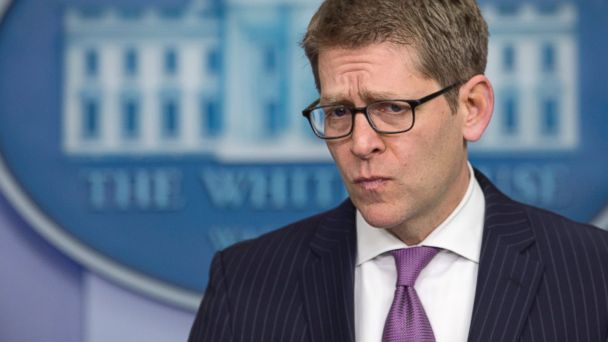'Cuban Twitter' Could Have Taught HealthCare.gov a Lesson or Two

White House press secretary Jay Carney pauses to listen to a question during the daily news briefing at the White House in Washington, April 3, 2014. (AP)
Revelations in a major investigative report today that the U.S. government funded a "Cuban Twitter" website intended to potentially stir unrest in the communist country have prompted some to wonder why the Obama administration couldn't muster the same technical wizardry for its flagship health care law.
The intelligence program, known as "ZunZuneo," was created through a cleverly crafted network of unsuspecting executives and an offshore Cayman Islands bank account, all funded through the United States Agency for International Development, or USAID, according to the report by the Associated Press.
But the 2010 rollout of the site and the road to its sudden downfall two years later has critics asking whether the government put more thought into a faux website than it did for the President Obama's signature health care law.
1) It was the best of rollouts, it was the worst of rollouts.
The scope intended for HealthCare.gov and ZunZuneo is obviously different. One is an avenue for millions to access and enroll in insurance plans, the other a social media site intended to bypass Internet restrictions of a strict communist government.
The buildup of ZunZuneo was the result of a team of high-tech contractors who were able to, at least initially, engineer the launch of an operational social media site, according to the AP.
Needless to say, the rollout of HealthCare.gov was a bit more rocky. The final cost of the site was $319 million, according to the Brookings Institute. The U.S. gave the site's contract to the Canadian firm CGI Group, which funneled the brunt of the funds to its subsidiary CGI Federal.
What came next was what many critics, and even early supporters, said was a disastrous rollout, which saw never-ending pundit criticism and resulted in the president's lowest approval ratings since he took office.
2) Making it work.
Following some broad technical adjustments to the HealthCare.gov site was a campaign-style push by the Obama administration to smooth things over and try to rebound on public approval.
But with ZunZuneo, the goal was the opposite. Its mission was to plant a seed among the Cuban people that would function as an instrument to turn people against the communist government, according to the AP report.
Then the contractors would harvest the information, with the supposed intention of compiling valuable intelligence on the island, according to the AP. And according to sources quoted by the AP, it was starting to work.
While the Obama administration recruited stars like Zach Galifianakis and LeBron James to push its HealthCare.gov enrollment numbers up, the firm behind ZunZuneo hired a Cuban satirical artist to blast messages out to subscribers.
3) Uncertain legacies.
With so little known about the 7.1 million people who successfully enrolled through the federal and state health care websites, HealthCare.gov's legacy is still very much up in the air.
Even though ZunZuneo officially shut down due to a drying up of funds in June 2012, its future is also uncertain. While contractors did everything they could to keep the U.S. involvement a secret, according to the AP, the service left its mark on many in the Cuban community.
To the more than 40,000 subscribers, ZunZuneo's disappearance was a mystery, according to the AP. Some attributed it to a Cuban government crackdown. Others, when told USAID was involved in its creation, were surprised because they said it did little to observably charge "dissent" in Cuba, according to the AP.
The real ZunZuneo legacy could be tested in coming months considering the curtains lifted on U.S. involvement in yet another shadowy intelligence program in the wake of the National Security Agency's data mining revelations. The AP quotes Sen. Patrick Leahy, D-Vt., chairman of the Appropriations Committee's State Department and foreign operations subcommittee, calling the program "troubling."
White House Press Secretary Jay Carney said today that ZunZuneo was never classified as a "covert program" as the AP story described.
"The president and his administration support efforts to help Cuban citizens communicate more easily with one another and with the outside world," Carney said. "So I'm not aware of individuals here who knew about it. This is part of a development assistance program."
In response to the AP report, USAID spokesman Matt Herrick said today that the "purpose of the Zunzuneo project was to create a platform for Cubans to speak freely among themselves, period."
"All of our work in Cuba, including this project, was reviewed in detail in 2013 by the Government Accountability Office and found to be consistent with U.S. law and appropriate under oversight controls," Herrick noted.